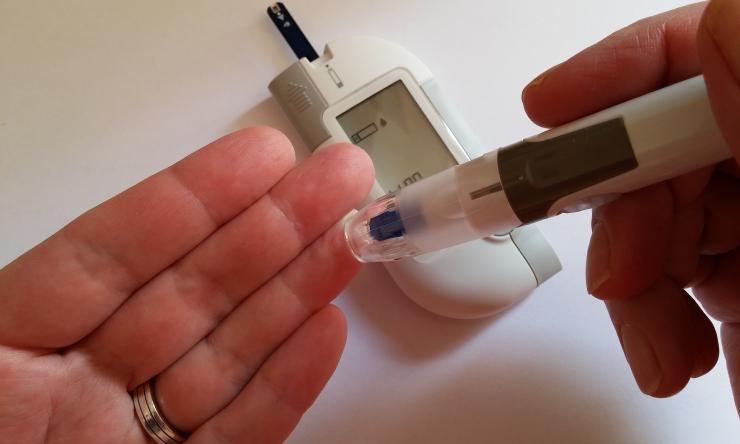Youth-onset type 2 diabetes complications arise by young adulthood
A clinical study at Baylor College of Medicine has found that people with type 2 diabetes diagnosed during youth have a high risk of developing complications at early ages and have a greater chance of multiple complications within 15 years after diagnosis. The findings are the culmination of a first-of-its-kind trial funded largely by the National Institute of Diabetes and Digestive and Kidney Diseases (NIDDK), part of the National Institutes of Health.
Within 15 years of a type 2 diabetes diagnosis, 60% of participants had at least one diabetes-related complication, and nearly a third of participants had two or more complications, according to results of the Treatment Options for Type 2 Diabetes in Adolescents and Youth (TODAY) follow-up study, called TODAY2. The findings were published in the New England Journal of Medicine.
“Type 2 diabetes tends to be more prevalent in Hispanics, African Americans and many Asian communities than in European Americans. TODAY findings are particularly relevant to Houston with its racially and ethnically diverse young population. TODAY’s original findings showed that Type 2 diabetes in childhood is more aggressive than in adulthood,” said Dr. Siripoom McKay, principal investigator of the study at Baylor and assistant professor of pediatrics-diabetes and endocrinology at Baylor and Texas Children’s Hospital.
TODAY2 involved 500 original participants from the TODAY study, which began in 2004. TODAY was the first major comparative effectiveness trial for the treatment of type 2 diabetes in youth. The study compared three treatments for managing blood glucose: metformin alone, metformin plus rosiglitazone, and metformin plus an intensive lifestyle intervention. Metformin is the only oral medication approved by the U.S. Food and Drug Administration to treat type 2 diabetes in youth.
At the time of enrollment, participants were between the ages of 10-17, had been diagnosed with type 2 diabetes for fewer than two years, and were overweight or had obesity. The average age of participants after the TODAY2 follow-up was 26 years.
Participants in TODAY2 were monitored annually for signs of diabetes complications, including heart disease, kidney disease, diabetic foot complications, and to report other health events. Diabetic eye disease was assessed once during the study, at the seven-year study visit.
Overall, researchers saw a steady decline in blood glucose control over 15 years. In addition,
- 67 percent of participants had high blood pressure
- Nearly 52 percent had dyslipidemia, or high fat levels in the blood
- Mearly 55 percent had kidney disease
- 32 percent had evidence of nerve disease
- 51 percent had eye disease.
Rates did not differ based on the original TODAY study treatment group assignment.
In addition, certain participants had a higher likelihood to develop multiple complications over time, with 28% developing two or more over the follow-up period. Participants who belonged to a minority racial or ethnic group, or who had high blood glucose, high blood pressure, and dyslipidemia were at higher risk for developing a complication.
“These complication rates have huge implications for not just the health but also the healthcare cost and loss of productivity for adults who develop type 2 diabetes in childhood,” said Dr. Fida Bacha, co-investigator of the study at Baylor and associate professor of pediatrics-endocrinology and diabetes at Baylor and Texas Children’s.
The TODAY study’s diverse cohort is representative of the U.S. youth diagnosed with type 2 diabetes. Study participants had regular, intensive diabetes management through the study at no cost during the original TODAY trial, which researchers note may have actually lowered the rate of complications.
“We need more studies in youth with type 2 diabetes in order to develop strategies to improve the future health outcome of children with type 2 diabetes,” McKay said.
The TODAY and TODAY2 studies were conducted at Baylor and 14 other centers in the U.S. The George Washington University, Washington, D.C., served as the data coordinating center.
This work was completed with funding from NIDDK/NIH grant numbers U01-DK61212, U01-DK61230, U01-DK61239, U01-DK61242, and U01-DK61254; the National Center for Research Resources General Clinical Research Centers Program; and the NCRR Clinical and Translational Science Award Program.
TODAY received additional support from Becton, Dickinson and Company; Bristol-Myers Squibb; Eli Lilly and Company; GlaxoSmithKline; LifeScan, Inc.; Pfizer; and Sanofi Aventis.










